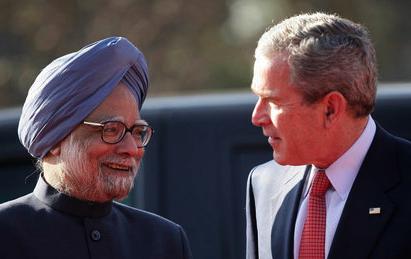Before the United States and India can consummate their nuclear pact, a major hurdle remains: The guidelines of the Nuclear Suppliers Group (NSG) prohibit nuclear export to countries that, like India, lack full-scope safeguards. Many expected that, at Washington's behest, the NSG would rubber stamp an exception for India -- until Beijing hinted again this week that it might block such a rules change. The Nuclear Suppliers Group, a cartel of 45 nuclear fuel producing countries that coordinate export controls to non-nuclear-weapon states, is little known outside of nonproliferation circles but plays a critical role in limiting access to uranium and plutonium, without which new nuclear weapons cannot be produced. Participation is voluntary -- countries ultimately can export, even in contradiction of their NSG commitments -- but surprisingly robust. Because the NSG operates on consensus, China could single-handedly force a reassessment. If it does, Washington will be faced with a choice: negotiate a solution, or proceed without the NSG's mandate. Given the administration's inclinations, the temptation will be strong to push aside the NSG and then blame China. This approach would sell well domestically, especially since Beijing has hinted that the "solution" might be to include a similar NSG loophole for Pakistan -- a signal that its opposition to the deal may be less principled than pragmatic.
Principles and Proliferation: Reforming the India Nuclear Deal

